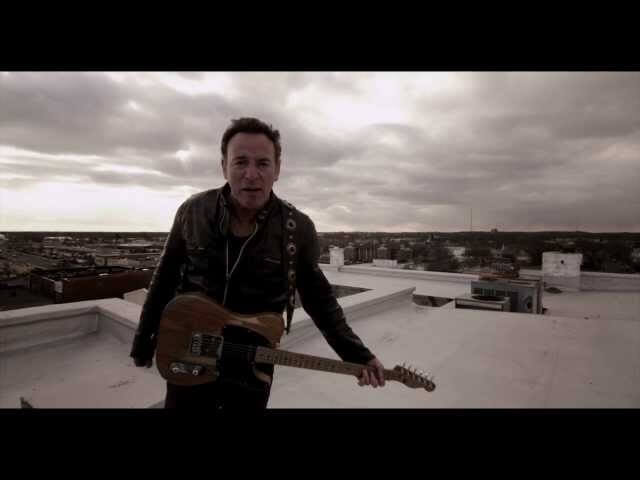Pays to be The Boss: Why the Bruce Springsteen business is still booming

In Cameron Crowe’s documentary about the making of the Elton John/Leon Russell album The Union, John talks about his expectations for the record, admitting that his platinum days are probably behind him, and that now he just wants to make a good album and spend some time with an old friend. As it turned out, The Union got good reviews, was nominated for a Grammy, and sold well worldwide. Still, John’s candor and self-awareness is refreshing, because it can be hard for some pop stars to accept that their time has passed. During the heyday of VH1’s Behind The Music, the most painful part of every episode was never the moment when the members of Styx or Journey started sniping at each other, but the moment when their cobbled-together lineups touted some bland, overproduced new album as “the best thing we’ve ever done.” A positive attitude is all well and good; but there’s something desperately sad about the delusions of the wannabe famous and the formerly famous.
For a heartening counterpoint, see Bruce Springsteen, whose 17th studio album, Wrecking Ball, came out yesterday after several months of steady promotion. I have no idea how well Wrecking Ball is going to do, but if the pattern of the last decade or so holds, the album should at least go gold in the U.S., and will probably sell millions more worldwide. Springsteen and his E Street Band will be touring, too, playing stadiums that will more than likely be full. Somehow, in an era when straight-ahead, veteran rockers can no longer count on radio or MTV to support their music, Springsteen still sells. He’s not moving units at superstar levels any more, but Columbia Records sure isn’t going broke by being in the Bruce Springsteen business.
What’s The Boss’ secret? Quality is a factor, sure. Like Neil Young, Tom Petty, and Bob Dylan, Springsteen still puts out good records, full of original songs that are true to his signature sound while showing a willingness to explore new musical ideas. And as a touring act, The E Street Band remains a powerhouse. I’ve seen Springsteen in concert twice—in 2000 and 2009—and while both shows were great, the second show was remarkably better. The man seems to be picking up momentum in his 60s.
But let’s be honest: Even though my early impression of Wrecking Ball is that it’s Springsteen’s best since the ’80s, I still have to admit that if I were to rank all the albums, Springsteen’s entire ’70s and ’80s output would come first, followed by Wrecking Ball, and then the ’90s and ’00s records. While 2002’s The Rising and 2007’s Magic (the latter of which I’d slot right after Wrecking Ball) include an impressive number of top-tier Springsteen songs, there’s also a lot of filler on both; and I’m not going to pretend I regularly listen to more than a song or two each off of 2005’s tedious Devils & Dust or 2009’s goofy Working On A Dream. (I do like the 2006 folk-punk exercise We Shall Overcome a great deal, but since that album’s mostly covers, I tend to file it alongside the live albums in my head.) In my opinion, Springsteen isn’t exactly making masterpieces these days. I’m a Bruce-booster, so I’m glad his music still sells, but I can all but guarantee that there’ll be much better albums than Wrecking Ball this year—maybe even by musicians from Springsteen’s generation—that won’t sell as much in 12 months as Wrecking Ball is likely to move in its first week.
There are multiple reasons why Springsteen has hung on in a market that’s generally hostile to oldsters. One is that he’s never been an ostentatious, overbearing figure on the pop music scene. There are plenty of rock stars who’ve taken their brief moment in the spotlight as a personal validation, and thus as an excuse to become free-spending egomaniacs. Those are the ones whose declining sales and significance become hard to watch. They don’t have the “it’ll be what it’ll be” attitude that Elton John showed in The Union; instead, they seem to really need the accolades (and perhaps even the money) that aren’t coming their way anymore. Springsteen’s always been more about communicating—and communing—than about living high. He’s a powerful enough performer that he could easily tour every year and cash in on his back catalog, like a Jimmy Buffett* or a Steve Miller. Instead, he still works hard on his albums, using the studio to document the world as he sees it. And then he tours, to promote the albums and continue the conversation that the albums are meant to start.
 Keep scrolling for more great stories.
Keep scrolling for more great stories.
